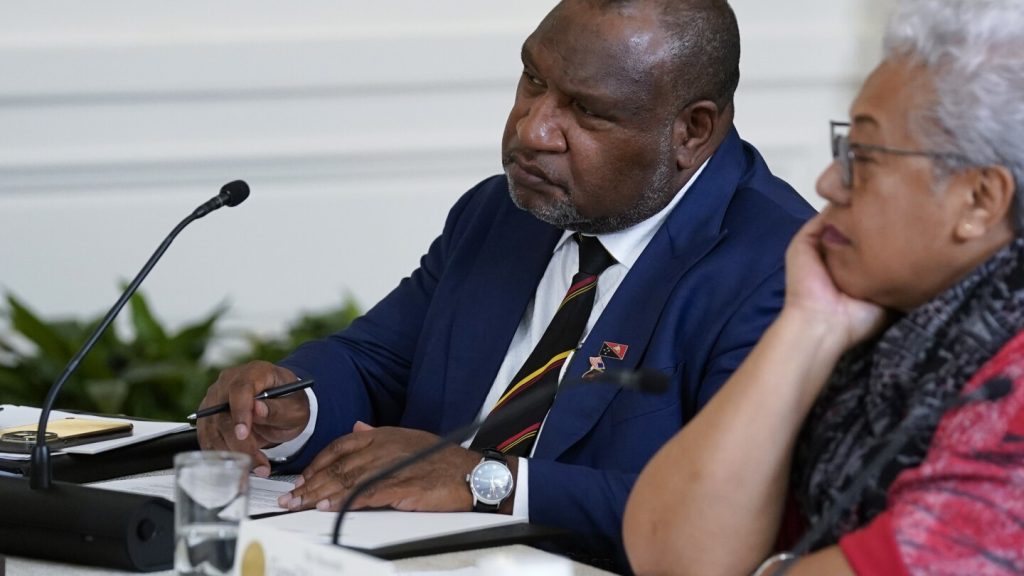Papua New Guinea’s Prime Minister James Marape has accused Joe Biden of disparaging the country by implying that Biden’s uncle was eaten by cannibals during World War II. Marape expressed his disappointment in Biden’s comments, stating that the country does not deserve to be labeled in such a manner. Marape emphasized that Papua New Guinea was needlessly dragged into a conflict that was not of their doing. The rift between the two leaders comes at a time when China is increasing its influence in the region, highlighting the strategic importance of maintaining strong relationships with key allies like Papua New Guinea.
As Australian Prime Minister Anthony Albanese visited Papua New Guinea to commemorate strong defense ties between the two countries, he emphasized the importance of their partnership. Albanese and Marape are set to walk part of the Kokoda Track, a pivotal battle ground during World War II, to honor the historic relationship between their nations. The visit serves as a reminder of the close defense and security ties between Papua New Guinea and Australia, with Albanese stating that PNG has no stronger partner than Australia. The timing of the visit coincides with the controversy surrounding Biden’s comments and the need to strengthen alliances in the face of increasing regional competition.
Marape’s statement calling on the U.S. to find its war dead in Papua New Guinea’s jungles and clean up the wreckage of war reflects the ongoing impact of World War II on the country. He highlighted that the remains of WWII, including human remains, plane wrecks, and other remnants of the war, are scattered throughout PNG and Solomon Islands. Marape urged the U.S. to take responsibility for locating the remains of servicemen like Ambrose Finnegan, the uncle of President Biden, whose plane wreckage still lies in the country. The statement underscores the lasting legacy of the war in the region and the need for continued efforts to address its impact on local communities.
The U.S. Embassy in Port Moresby did not immediately respond to requests for comment on the matter, leaving the issue unresolved. Marape’s meeting with China’s Foreign Minister Wang Yi to discuss building closer relations also signifies the shifting dynamics in the region, with countries like China seeking to expand their influence. Marape’s call for the U.S. to address the legacy of WWII in Papua New Guinea highlights the ongoing challenges faced by the country, including the presence of unexploded bombs and other remnants of the war. The diplomatic tensions stemming from Biden’s remarks underscore the complex relationships between nations in the South Pacific and the need for sensitivity and understanding in addressing historical legacies.
In conclusion, the controversy surrounding Joe Biden’s comments about Papua New Guinea has strained relations between the U.S. and the island nation, highlighting the importance of respectful and informed discourse in international relations. Marape’s response underscores the need for sensitivity when addressing historical events and the lasting impact of war on communities in the region. As Papua New Guinea seeks to address the legacy of WWII and strengthen its ties with key allies like Australia, the role of major powers like the U.S. and China in the region will continue to shape the dynamics of the South Pacific. Moving forward, it is essential for leaders to engage in constructive dialogue and cooperation to navigate the complex challenges facing the region and ensure a peaceful and prosperous future for all nations involved.


